Solitary Confinement is a Brutal Form of Torture
Humans are social creatures. Isolation damages our minds
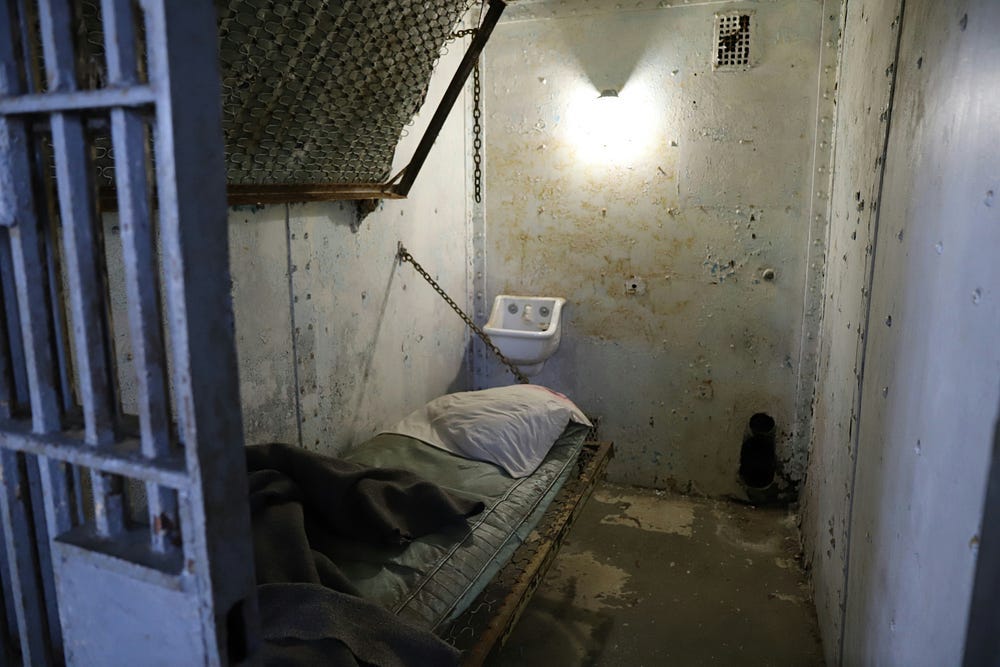
There are few things in life that are more painful than being cut off from human contact.
We’ve all felt loneliness at some point. We’ve all felt what it’s like to be isolated and left alone.
Most of us will have experienced it for the first time as kids, when our friends decided we weren’t cool enough to hang out with them anymore. Schoolyard politics were a hellish quagmire, especially for those of us who were a little socially awkward.
For most of us, isolation will keep happening from time to time even as we grow into adults.
We feel it when we’re excluded from the office lunch party or ghosted by a friend or a dating partner. Maybe we go through it when something traumatic happens, and we look around and realize that people are pulling away because they can’t relate to what we’ve gone through.
No matter the reason, it always hurts.
We’ve all felt that excruciating burn of being cut off from our social group. Having the metaphorical door slammed shut in our faces, being pushed out of the inner circle and left to deal with things on our own.
The human brain doesn’t deal very well with isolation. It’s genuinely torturous and damaging to our mental health — that’s a big part of why people struggled with social distancing during the pandemic.
We all know how terrible it is to be trapped in solitude against our wishes.
Deliberately using it as a punishment is disturbing and cruel.
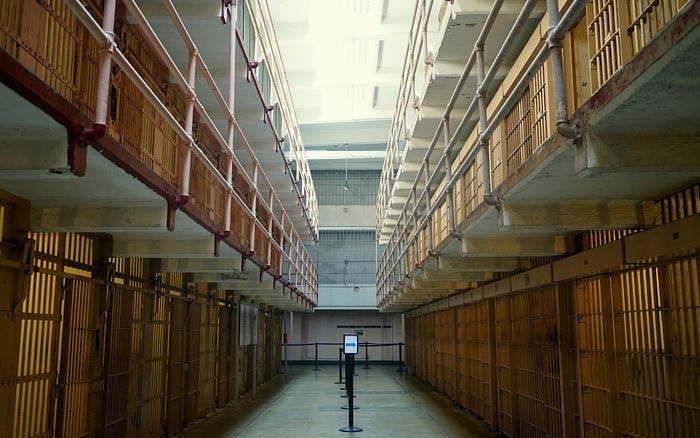
The way we administer justice to those who have broken the law can be a contentious topic.
There’s a lot of disagreement on how the prison system should function. Should the focus be on rehabilitation, like psychologists suggest? Or should we think of it as retribution, punishing the wicked for the things they’ve done wrong?
Should sentencing be handled with one-size-fits-all penalties? Or should we take an individual’s unique situation into account when deciding how they should be treated?
Should certain offenses— like drug abuse and addiction — even be handled in a criminal court?
Is there any benefit to standardizing prisons under government control, or should we lean into private prisons with a profit motive?
Justice, law and order are subjects with a veritable truckload of controversies, and this is only a small selection of the issues that we could debate.
But among the most brutal things we do to people in the name of enforcing the law is solitary confinement. In laymen’s terms, we lock people in a box, and we leave them alone with nothing but their own thoughts for company.
Solitary confinement is a common form of disciplinary action in North America, especially in the United States where it is used on inmates of all ages — including minors in juvenile detention.
While it’s technically illegal in Canada as of 2019, prisoners are still routinely subjected to conditions that mimic solitary confinement to the point where there is no practical difference.
There are several reasons why this is so horrifying, not least of which is that it’s just a deranged way to treat human beings.
The fact that we are, as a society, willing to lock people in what amounts to a closet and ignore them for hours and hours…that does not speak well of us and our collective moral fiber.
Make no mistake — this is torture, and it has disastrous consequences not just for the victim, but for everybody around them.
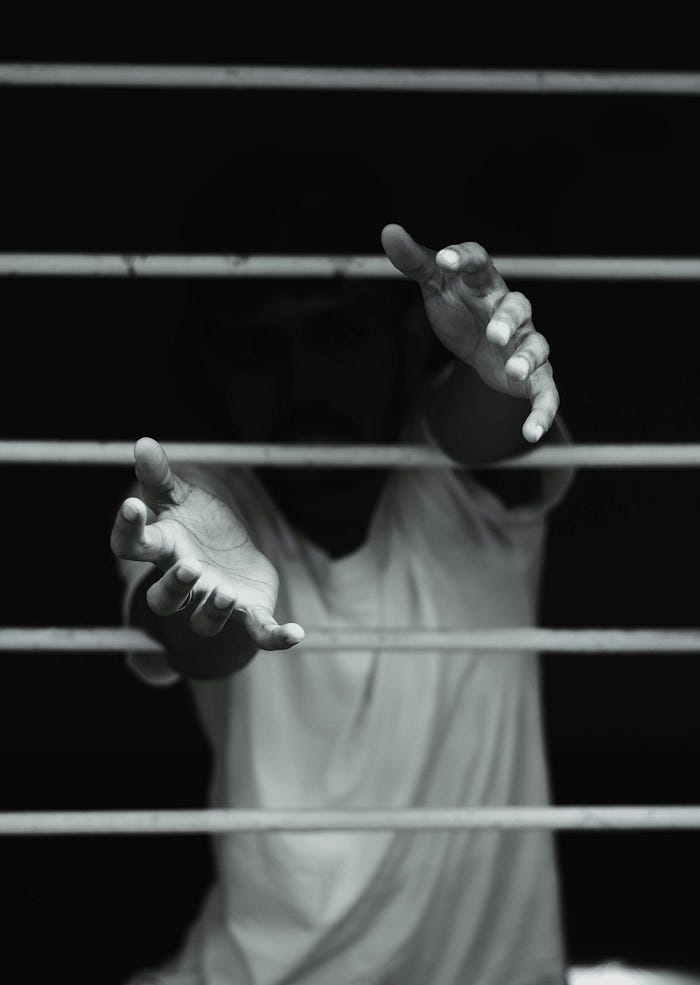
Solitary confinement is wildly overused, and it causes a bevy of issues.
It’s used as a catch-all trick to punish prisoners for everything from talking back, hoarding contraband or having a mental health crisis. Not only is this ineffective as a deterrent, but it’s also contributing to a very serious and pervasive problem in the justice system: recidivism.
When you complete your prison sentence, you have served your time and paid off your debt to society.
You ought, therefore, to be able to return to living a normal life, reintegrating back into the workforce and behaving yourself as a responsible citizen.
That should be the goal. And yet, many people who leave prison in North America don’t manage to clear that bar.
Now, there are a lot of reasons for this. Sometimes it’s a consequence of their financial situation; people leaving prison don’t always have a means of earning a decent living, especially if they were convicted of a crime like theft.
Stores don’t want to hire people with a history of stealing money, and a lot of companies will find reasons not to hire ex-cons just because of the various stigmas attached to being in prison.
People who can’t get a job can struggle to make ends meet, so they may end up resorting to illegal methods of making money.
Sometimes it’s due to their social circle or family ties. If you’ve got gang affiliations, just because you got out of prison doesn’t mean you can just walk away without running into problems — even if you want to. It’s possible, but it’s difficult.
And for some people, they wind up back in prison due to untreated mental illness. This is where solitary confinement comes into play.
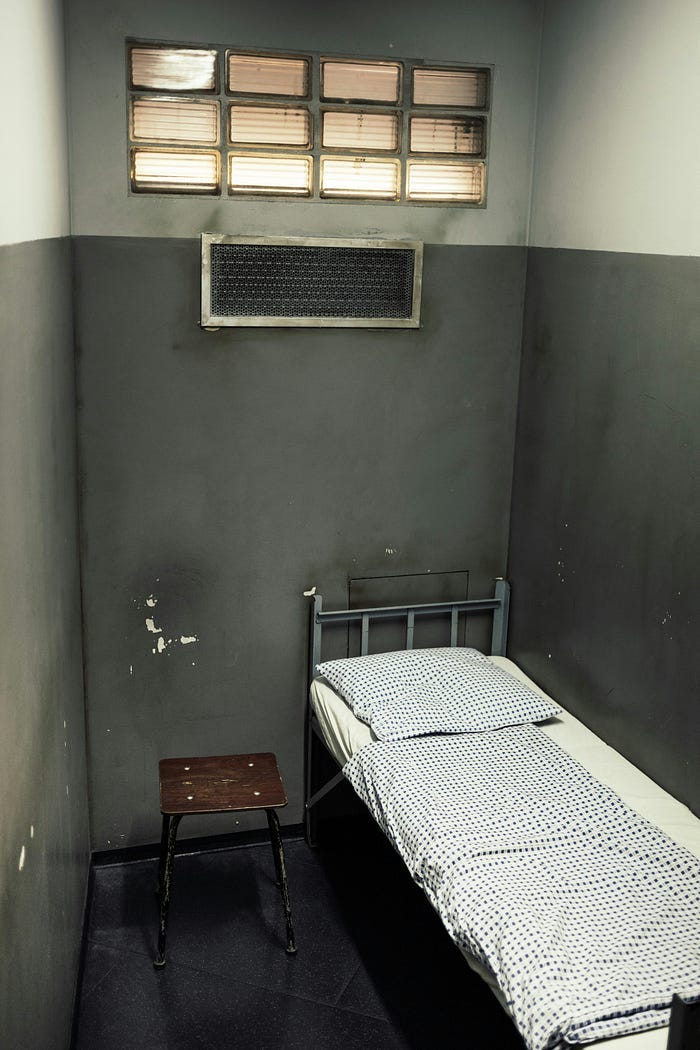
Solitary confinement wreaks havoc on a person’s mental health.
There are a wide variety of symptoms that people can experience whilst in solitary, and they often continue long after they leave.
Nearly all of those symptoms are caused by a lack of interaction with other people, with a handful due to the sensory deprivation of being locked in an empty room.
The psychological symptoms experienced can include:
Depression
Suicidal thoughts or attempts
Desire to self-harm
Paranoia
Hallucinations
Severe anxiety and panic attacks
Violent outbursts of rage
Difficulty with concentration
And those are just a few. What’s worse, these symptoms are not always temporary. Extended periods of solitary confinement are associated with a higher risk of death, both during confinement and after leaving prison.
The causes range from intentional suicide to accidental overdose as victims attempt to self-medicate and cope with their failing mental health.
As well, it’s important to note that those who belong to marginalized communities are more likely to be thrown into solitary than the general population. Prejudice makes you more likely to be convicted, and it makes you more likely to receive harsh treatment on the inside.
Even people who are mentally stable can come out of solitary with extreme psychological distress. It quite literally breaks people. And it doesn’t take long; symptoms like hallucinations and an inability to judge the passage of time can show up within hours.
Now, what do you suppose happens when you take someone with paranoia, hallucinations, poor impulse control and violent outbursts and throw them back out onto the street?
You guessed it; they’re much more likely to reoffend and be returned to jail.
So much for returning to normal life. So much for deterring future crimes.
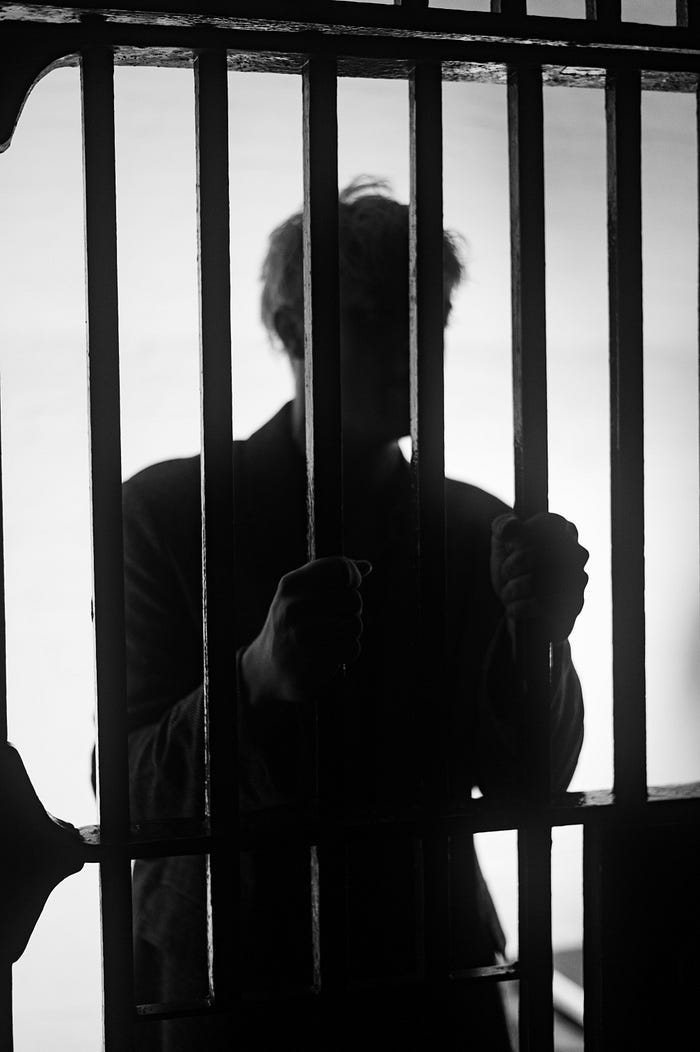
Solitary destroys people. It destroys lives. It destroys families.
And yet we keep doing it to people because we’ve convinced ourselves that they deserve it, or that it will teach them a lesson and scare them straight.
In researching for this article, I came across a video clip. It was taken by a journalist who was touring a prison, and they stopped to film the wing that houses people ‘in segregation.’
The doors are heavy, made of metal with only a tiny slit for pushing a food tray in for the prisoners.
One of the doors in an occupied cell was shaking, rattling in its frame from the weight of the body slamming into it from the inside. Banging, crashing, battering against it in a wild attempt to escape.
You could hear the prisoner howling, screaming and wailing for help as they tried to get out of their cell.
Nobody deserves to be reduced to that. No living being should be treated like that.
Thankfully, I’m not alone in saying that; there are organizations out there like Unlock The Box that are working day and night to end solitary confinement as a practice, campaigning to put an end to this brutal practice of psychological torture.
That gives me hope, and I look forward to the day that they finally succeed.
The system is broken, but it doesn’t need to be. We can do better, and someday we will.
Solidarity wins.
If you want to read more about prison reform and how we can fix our awful justice system, consider checking out these articles!


Inhumane
Thanks for sharing. I love your psychological point of view. As a psych major myself I think not enough is understood by the general populace about the way that from a psychological standpoint what we are doing in prisons is just torture. I think its also worth noting, and you might have and I missed it, that prisoners who have ADHD etc, neural scans show the same effects as physical pain when they are bored. If the goal is to learn and improve to fit back into society, we need to change entirely how we operate.